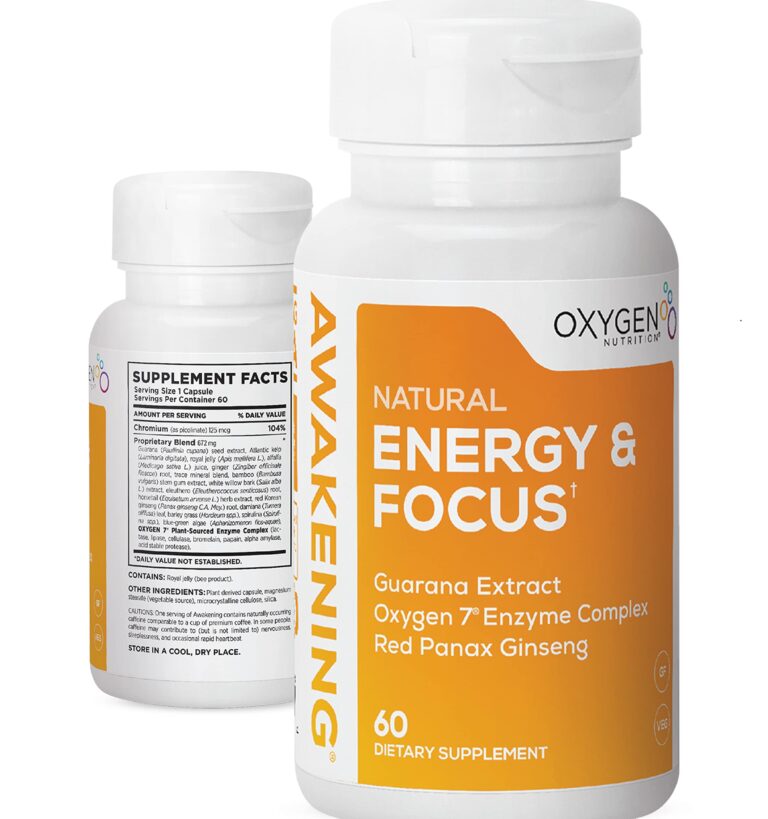The Importance of Gut Health and Probiotics: Key to Overall Wellness
Your gut is more than just a digestive organ; it’s a complex system that plays a crucial role in your overall health. Often referred to as the “second brain,” the gut affects everything from digestion and immunity to mental health and mood. A healthy gut is essential for proper nutrient absorption and a balanced immune system. Probiotics, the beneficial bacteria found in certain foods and supplements, help support gut health by promoting a diverse and balanced microbiome. In this article, we’ll dive into the importance of gut health, how it impacts your well-being, and the vital role probiotics play in maintaining a healthy gut.
Understanding the Gut and Its Role in Health
The gut, or gastrointestinal tract, is home to trillions of bacteria, both good and bad. These microorganisms make up the gut microbiome and are essential for digesting food, synthesizing nutrients, and protecting the body from harmful invaders. The balance of good and bad bacteria in the gut affects various bodily functions, including the immune system, hormone regulation, and even brain health. When this balance is disrupted, it can lead to digestive issues, inflammation, and a weakened immune system. Maintaining a healthy gut microbiome is crucial for overall health, which is where probiotics come into play.
How Probiotics Support Gut Health
Probiotics are live bacteria and yeasts that are beneficial to your digestive system. These “good” bacteria help restore balance in the gut microbiome by crowding out harmful bacteria and promoting the growth of beneficial microorganisms. Consuming probiotics through foods like yogurt, kefir, sauerkraut, and kimchi, or in supplement form, can enhance the diversity of gut bacteria and support overall digestive health. Probiotics also help maintain the integrity of the gut lining, which is important for preventing harmful substances from leaking into the bloodstream, a condition known as “leaky gut.”
Gut Health and the Immune System: A Vital Connection
A large portion of your immune system resides in your gut, making gut health directly tied to immune function. The gut microbiome influences the production of immune cells and helps regulate inflammation. An imbalance of gut bacteria can lead to an overactive immune response, which can contribute to chronic inflammation and autoimmune conditions. Probiotics can help modulate the immune system by promoting a healthy gut environment, enhancing the production of protective immune cells, and reducing the risk of infections and inflammatory diseases. By improving gut health, probiotics support the body’s ability to defend against harmful pathogens.
Gut Health and Mental Wellness: The Brain-Gut Connection
The connection between the gut and the brain is known as the gut-brain axis. This two-way communication network links the gastrointestinal system with the brain, influencing mood, behavior, and cognitive function. Research has shown that an imbalance in gut bacteria can contribute to mental health issues, including anxiety, depression, and stress. Probiotics may have a positive impact on mental wellness by supporting the gut microbiome and regulating neurotransmitter production. Studies suggest that certain probiotic strains can reduce symptoms of anxiety and depression, leading to improved mood and overall mental health.
Signs Your Gut Needs Support and How Probiotics Can Help
If you’re experiencing digestive discomfort, irregular bowel movements, bloating, or fatigue, it could be a sign that your gut health is out of balance. Other symptoms of poor gut health include skin issues like acne or eczema, frequent infections, or food sensitivities. Taking probiotics can help restore balance to your gut microbiome, easing digestive discomfort and improving immune function. It’s important to consult with a healthcare professional before starting any probiotic supplement, as different strains offer various benefits, and personalized recommendations can optimize results.
FAQs
Q1: What are the best sources of probiotics?
The best sources of probiotics include fermented foods like yogurt, kefir, sauerkraut, kimchi, and kombucha. Probiotic supplements are also available for those who don’t consume these foods regularly.
Q2: How long does it take for probiotics to work?
The time it takes for probiotics to show results can vary depending on the individual and the specific issue being addressed. Some people may feel improvement within a few days, while others may take a few weeks to notice significant changes.
Q3: Are probiotics safe to take daily?
Probiotics are generally safe for most people when taken as directed. However, it’s important to consult with a healthcare provider before starting probiotics, especially for those with underlying health conditions or a weakened immune system.
Q4: Can probiotics cure digestive issues like IBS?
Probiotics can help manage symptoms of digestive issues like irritable bowel syndrome (IBS) by restoring balance to the gut microbiome. However, they may not cure the condition and should be used as part of a comprehensive treatment plan.
Q5: Can probiotics help with weight loss?
Some research suggests that probiotics may help with weight management by regulating gut bacteria and influencing metabolism. However, they should not be relied on as the sole method for weight loss and should be used alongside a healthy diet and exercise.

